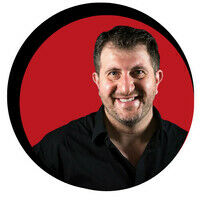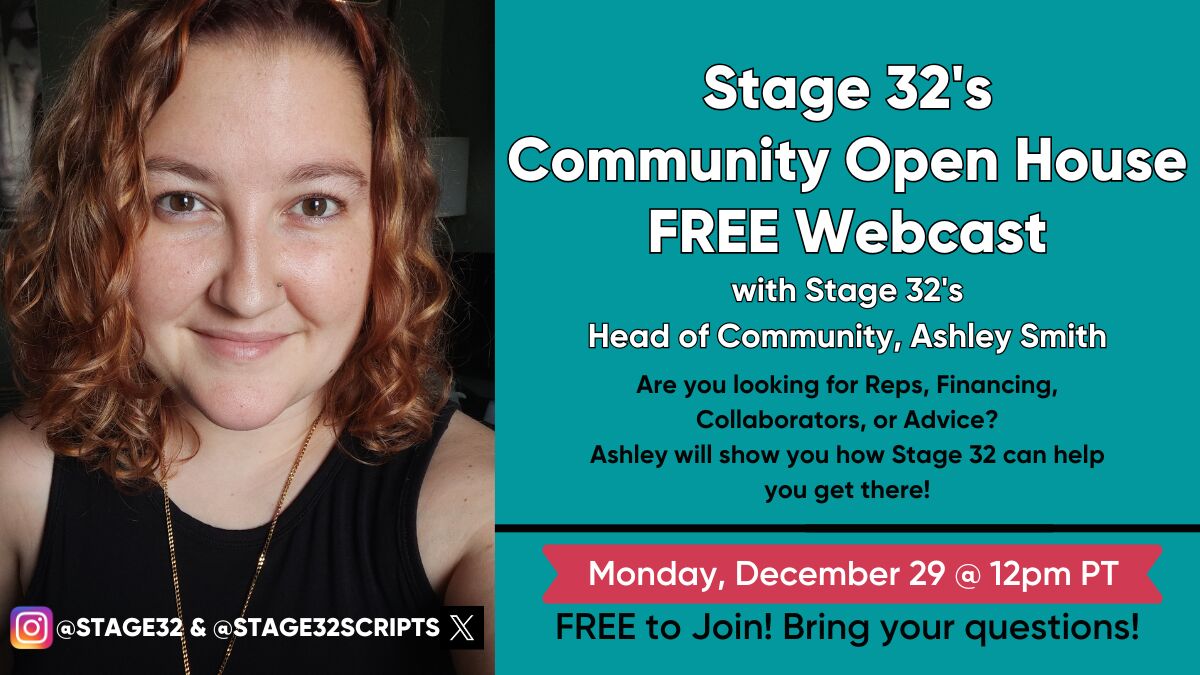Hey folks. Tom from Stage 32 here. I LOVE film scores. I love the sense memory it creates for me about the film that I watched. When Michael Keaton appeared as Batman in The Flash, it was really cool, but when the Danny Elfman score played while he was in the OG Batwing, it gave me chills. Great film scores can really make a good movie great and a great movie unforgettable. Some of my favorites are James Horner, Danny Elfman, Hans Zimmer, and of course the GOAT, John Williams. But I honestly have no idea how it gets done. I know nothing about music theory or production. So I am curious, what is your process?



3 people like this
Hi Tom Lapke ,
I like John Williams Star Wars & Close Encounters.
When I did this one Christian film competition, - my first 10-11 minute project, Bob Jones U had a music Cues where they wanted a certain emotion/ music styles. Part of my process was doing best to lie down a bed of music - then added best low melody, for the first scene. Since it was my first time to make / score music, I went to Pond 5 - a website with samples for the emotional cue needed. Then the processs was to write music similar to those cues.
In another scene, where there was a coming together/ final scene, I rearranged Amaziing Grace Spuradicly throughout the scene - giving a sense / feeling of comradere and a little tension as the one character talked to the other.
As I learn more about Sync music business, some of these cues / songs need to express emotion and be a certain length - ie like regular songs -
3 - 3:30 in length. Then, composers write letters to music supervisors, in which they listen and place music to certain movies / TV programming.
Tempo, different rhythms, and different musical keys offer tonalities which brake up the emotional moments. For instance, minor keys - C min - a min and D minor give a darker sound/ timbre to the music. In one book I read, Major chords one after another create the Magical type of tambre needed for other types of ‘Disney’ type scenes / if you understand some of different music out there.
Actually, this one film music training guy, Marc …
UK - mentioned this music progression.
As Hans Zimmer said in his Masterclass series once …
“Ah … story “! So it’s a lot about writing music for the storyline- emotional moments/scenes.
There’s a lot more which goes into each composer’s head when writing- since we’re all different.
4 people like this
Hey Tom Lapke.
I do love those composers you named. I woul also add to that list to James Newton Howard, and his works in Peter Pan (2003). He can create unbilieveble magic feelings with his music. I recommend you to listen to "Fairy dance", "Peter returns" and "Flying Jolly Roger". All the music in this movie has a narrative that directly relates to its plot.
I didn't have the oportunity to work on a film of that size, but I get inspired in that to compose my music. I made a piano concerto inspired in soundtracks, specially this one.
I try to compose with gregorian modes but in a different way, just like JNH. For example, mixing modes, add some chromatic notes, so it can "suprise" the listener.
Also I like to compose making some relations among the piano and the orchestra with the "plot" of the music, I make this developing the materials I decided to use in this Piano Concerto.
5 people like this
Tom Lapke , like Gian said, I have not worked on a film of the size either, to be honest.
I like to use 12 tone row from the past - beginning of 19th century- Schoenberg created the system.
From my ‘On the Track’ book, some composers use this technique for tension and release.
WIKI explains more about it.
https://en.m.wikipedia.org/wiki/Tone_row
4 people like this
Just booked a trip to Vegas to go see Hans Zimmer this Fall and I'm super excited! Danny Elfman is my all time fave. And I find it so interesting how it seems like the process depends on how quickly the composer "gets it" when consuming the story. I always think of the example of how Danny Elfman had almost the entire score and soundtrack down pat for The Nightmare Before Christmas before he ever saw even a rough cut, but how that's also not his normal process. He just felt an attachment to the original poem and the story of the film that he was inspired to write the music immediately. I also love the partnerships between directors and composers. One of my favorite stories is Nancy Meyers and her partnership with Hans Zimmer on the score to "The Holiday." Her intention was to make Cameron Diaz and Jude Law into a new aged Rock Hudson and Doris Day, so she was so intentional and insistent (some would say pushy lol) about including a bossa nova musical piece for the store that Hans Zimmer named the piece "For Nancy." (It's actually my favorite piece on that album lol)
4 people like this
I also love Terrance Blanchard, and how his music seems to be written to bring a reality to the people in the stories he writes music for. The first score I fell for was from the Spike Lee Joint "Crooklyn" when I was 7 years old.
1 person likes this
I think what is special about music for Film/TV is that each composer has their own process and style. When I'm talking to another composer I always ask them what their process is and the answer is different for everyone. Some start with a template (or palette) of sounds that they put together over time and use that template as a starting point for each project. I personally like to start from scratch and let the natural flow of my creative juices take over. After sketching for a while and trying out various different instruments, there's usually some element in the music that begins to stand out that will become representative of the overall feel of the film/tv score. From there it builds. It's quite an amazing process to be a part of.
2 people like this
Thank you all for these responses. Very informative!
2 people like this
1 - Read the script
2 - Get some film even if it's not edited early
3 - Work with the director to get the TONE of the film
4 - Once we have some samples and ideas, create a Cue Sheet
5 - For each Cue, determine Length, Tone, Point of View, Tempo and Purpose
6 - Create each Cue sending samples to the director until we find something they like
7 - Mix down the instruments, and Master the Mix
8 - Upload and deliver the goods
1 person likes this
Bruce Bray - and make sure if it's an Indie movie to download a Cue sheet for the PRO's. There's a standard between BMI & ASCAP called RapidCue. (2016). I've heard Composers need to do this sometimes when the Production team does not send the Cue sheet to the PRO.
https://www.bmi.com/news/entry/bmi_and_ascap_announce_new_standardized_c...2 people like this
I've actually been extremely fortunate as the Producer's have always done this for me. Even the last Feature that I worked on, the director took the Temp Names I gave for each Cue and just used those. Funny, it wasn't that much of a requirement for the US, but it was for European Distribution.